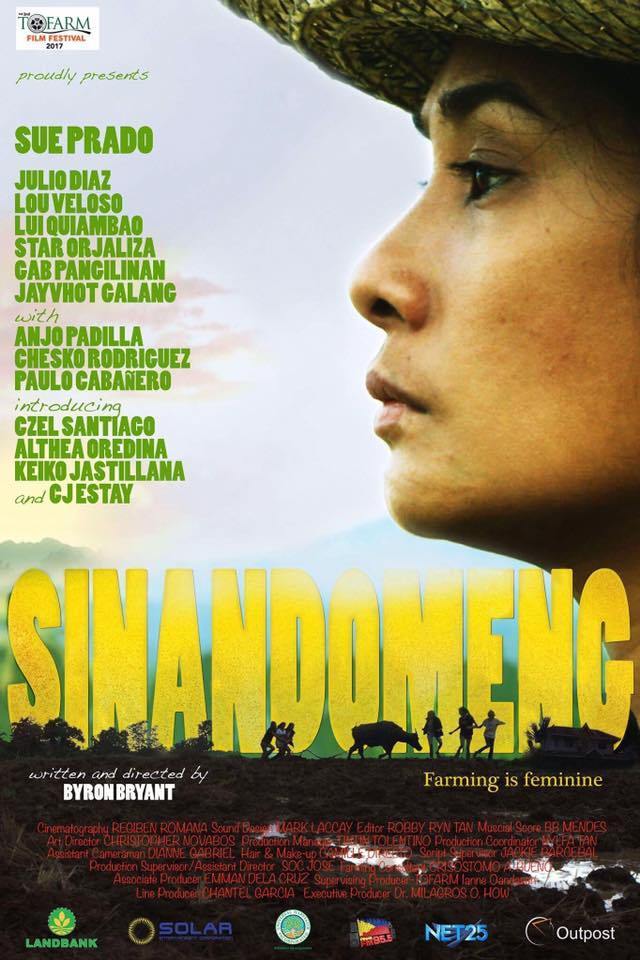By CORHEINNE JOYCE B. COLENDRES

FARMING REQUIRES an immense amount of strength, patience, and dedication. Most are familiar with the job’s intensity, yet they are unaccustomed to the idea that farming is also a way of life. It is more than an act of reaping what one has sown; it is an activity that demands the farmer’s utmost attention—farmers wake up before sunrise to prepare to till the soil, and they bear with the scalding heat as they bend their backs when it is time for harvest. It demands most of their time and it is an ultimate test of passion and diligence.
Sinandomeng draws its focal point from its idea that farming is more than plowing the soil or waking up before sunrise just to tend to the farm. Sinandomeng institutes the idea that farming is beyond the boundaries that limited the activity—showing that it is an heirloom passed down to generation after generation, a task that strengthens both mind and body, or a lifestyle that boils down to fulfillment.
Sinang (Sue Prado) holds on to this concept faithfully. All the men in her family have left the province to work abroad, and all who were left were her disabled father, Ka Domeng, and her husband Fabian, who tended to the farm in her father’s place. Yet the sudden death of her husband led to a change in her life because the duty of taking care of the farm now lies on her. Despite growing up as a farmer’s daughter, she never had the first-hand experience of what farming was truly about, but she is strong-willed and steadfast, ready to tend to her farm. Refusing to sell her part of the land unlike what her sisters did, it reveals her dedication in taking care of what her father left behind.
Sinang’s family and friends were consistent in holding her back due to the fact that she is a woman. And as Sinang’s mother often implied, farming was not feminine. But her struggle and her firm resolve to rise above the gender stereotype strengthened not only her character but also the flow of the entire story.
The film’s effort to hint the capabilities of a strong-willed woman does not go unnoticed. Sinang still strived to learn the ways of farming and to tend to the land that her father used to deeply cherish. The film maintains a tight grip on its feminist concept and magnificently presents it through a symbolic scene where all the women in Sinang’s family finally reaped the crops that Sinang and her children have planted.
The film balances its story together through the use of folk songs and various country hymns that sustain its provincial vibe. It features the province of Laguna and the daily routine of the farmers and how the villagers interact with each other, which may remind one of home.
Sinandomeng, an entry in the 2017 TOFARM Film Festival, is a kind of film where secrets lie beneath the scenes. These secrets must be extracted and realized to gain a full comprehension of the film. Its subtle hints toward feminism are commendable, as it was able to magnify the thought that women are able to do things that are labeled as a “man’s job”—and ultimately the film expresses that women can do anything. It reveals that there is nothing that can hold a strong-willed woman who incessantly strives to achieve something that she truly wants. F



